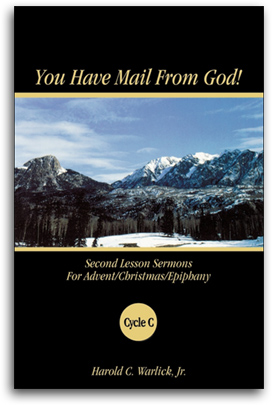SermonStudio
What Are Spiritual Gifts For?
Sermon
You Have Mail From God!
Second Lesson Sermons For Advent/Christmas/Epiphany Cycle C
A most important discovery has been made about trees. Derl Keefer1 states that scientists have found that when the roots of two trees touch, there is a substance present that reduces competition. An unknown fungus helps link roots of various trees, including dissimilar species. In this way a whole forest can be incorporated together. With certain trees having access to nutrients, other trees access to water, and still other trees access to sunlight, possessing the means to cooperate with one another is essential. The purpose, of course, is not cooperation but to survive and grow!


